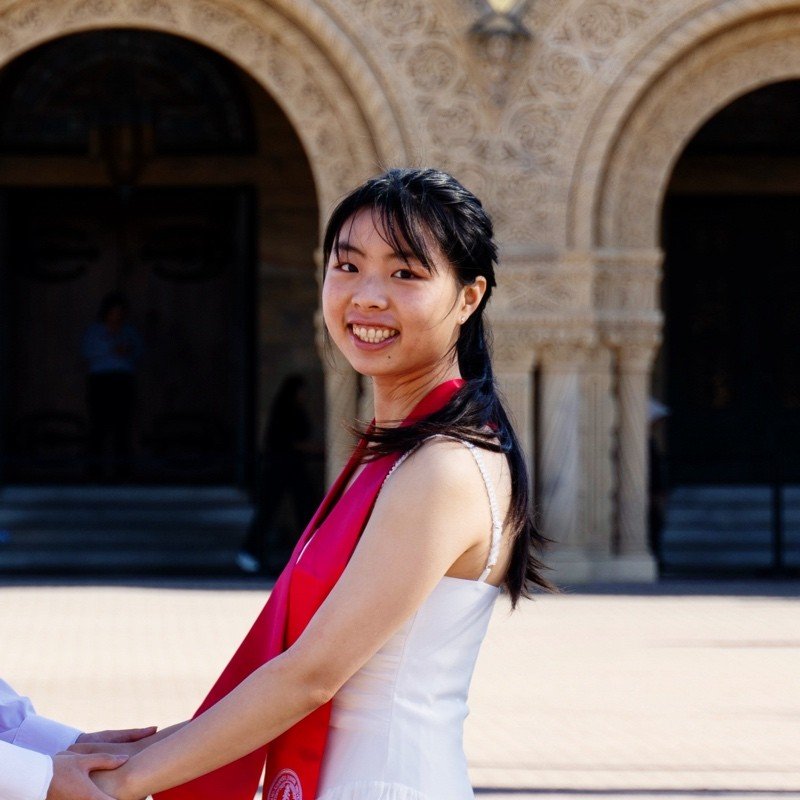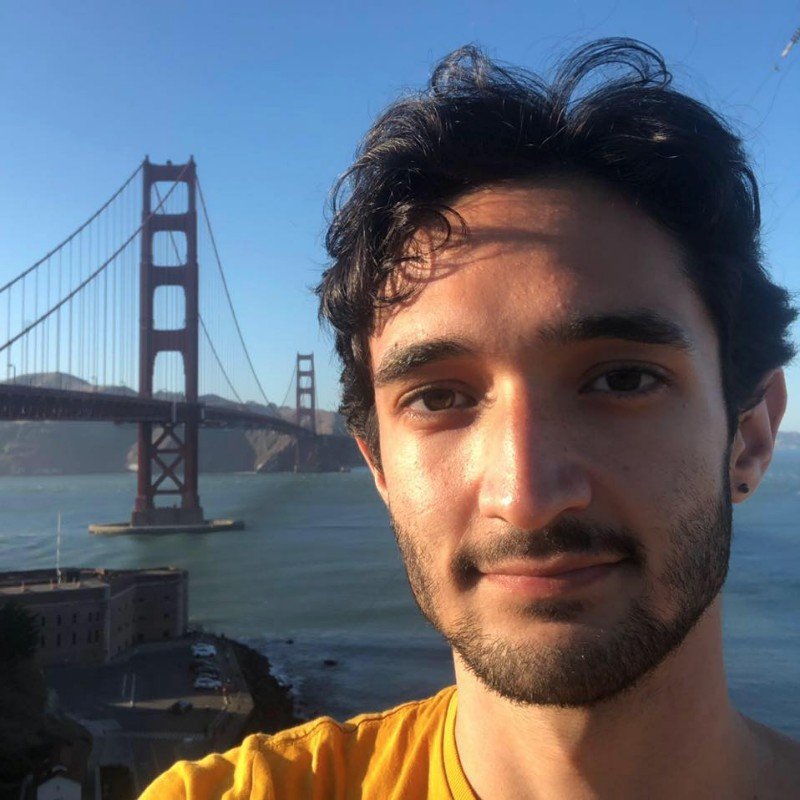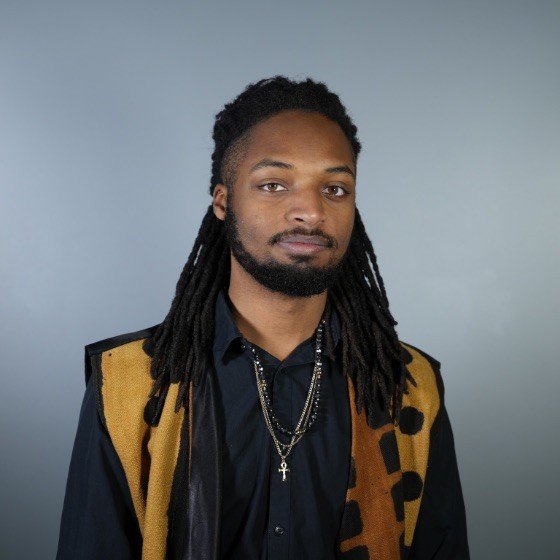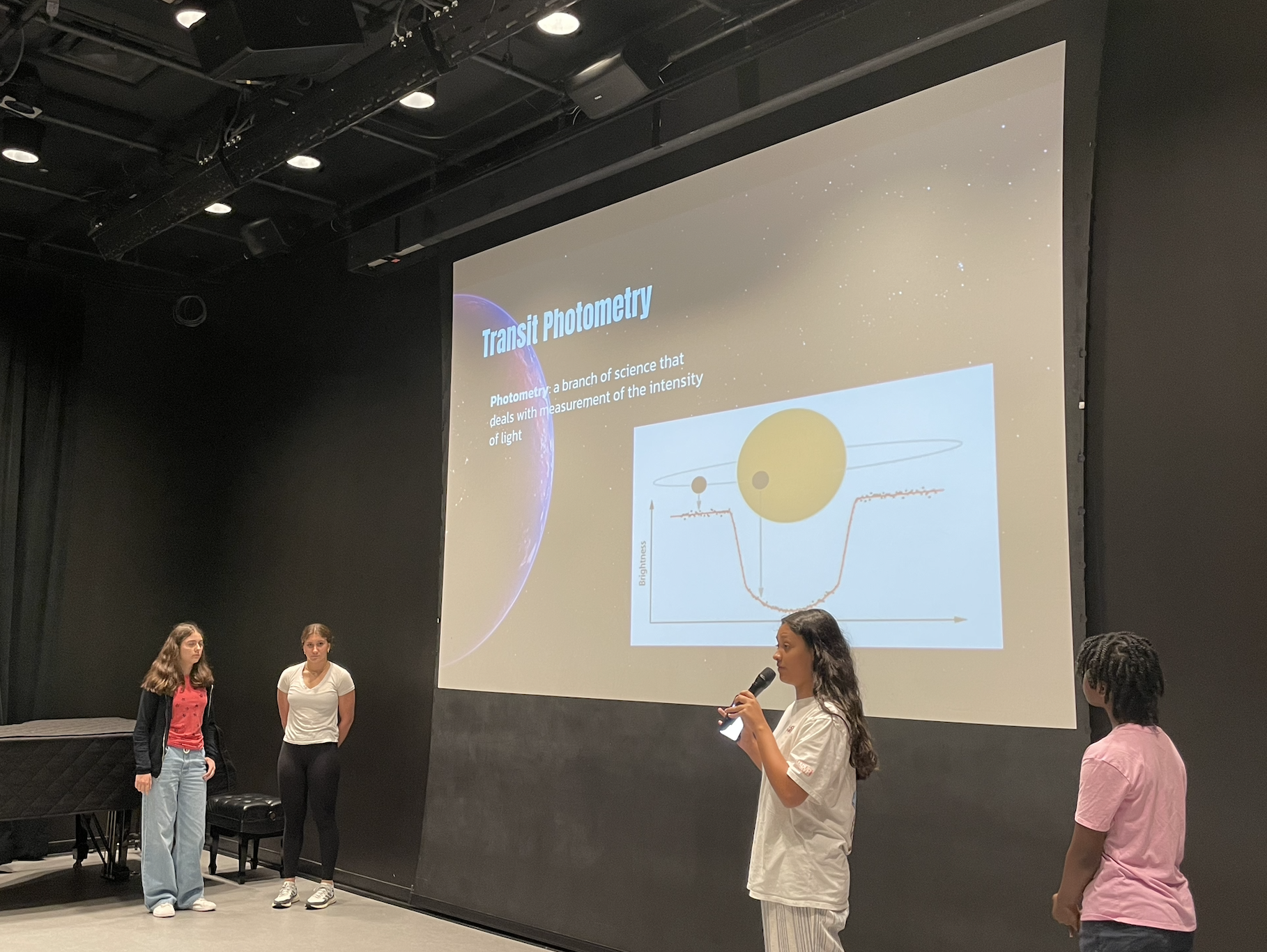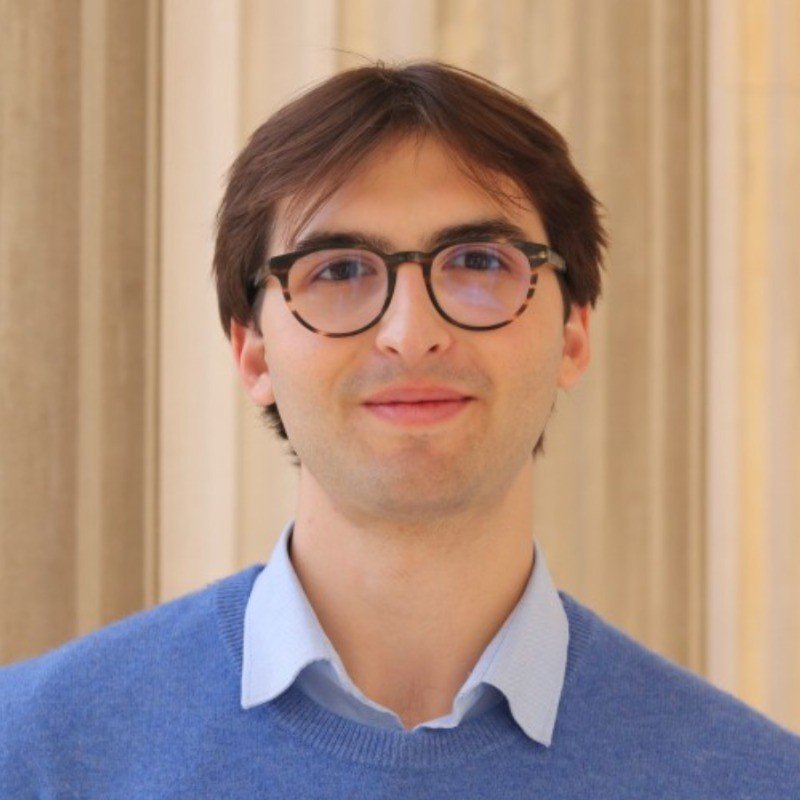What K12 Private School Leaders Think About Artificial Intelligence Education
As artificial intelligence continues to revolutionize industries worldwide, the need for early AI education has never been more pressing. Many K12 private school leaders in the U.S. are recognizing the importance of equipping their students with the tools and skills necessary to thrive in an AI-driven future. Through their partnership with Inspirit AI, these schools are integrating hands-on, project-based AI learning experiences for middle and high school students. By learning to program in Python and build real-world AI projects, students are developing a deep understanding of AI principles and their practical applications. This blog post dives into the unique perspectives of K12 private school leaders who have embraced Inspirit AI as their trusted AI education provider.
Inspirit AI partners with 100+ Leading K12 Schools Around the World
The Harker School
The Harker School’s partnership with Inspirit AI has introduced students to the power of AI through a structured, engaging, and dynamic learning environment. Students gain practical experience with Python programming while creating impactful AI projects that stretch their problem-solving abilities.
In the AI + medicine project, students created a computer vision system to help diagnose pneumonia from chest X-rays. Students reviewed neural networks and create convolutional neural networks in Keras to process medical images. Then students improved their models using transfer learning: adapting from expert models. Students also evaluated their model on field data, and learned to create artificial data using image transformations so that their model performs well on real-life data. Students even deployed their model to an app!
Inspirit AI partnered with Carol Green, Academic Principal at Harker Summer Institute, at The Harker School who shared:
“The program was an interesting experience to dive into the world of AI. This course taught me methods of different classifiers and how they can be used in the real-world. I liked how they used notebooks to provide understandable snippets of code and concepts. Having a set plan and goal motivated me to learn different concepts at my own pace.”
— Ayden G., 10th Grade, The Harker School
Khanh Nguyen, Harvard University, Stanford University
Khanh Nguyen is an incoming PhD student at Harvard University in the Chemistry and Chemical Biology Department. Khanh has a Master's in Biology and a BSH in Chemistry, minor in Computer Science, from Stanford University. She is passionate about antibiotic resistance and how we can use techniques from chemistry, biology, and computer science to better understand bacterial systems and develop antibiotics to combat resistance mechanisms.
The Hun School of Princeton
At the Hun School of Princeton, Inspirit AI has empowered students to explore the cutting-edge world of artificial intelligence through interactive, project-based learning. This partnership has provided students with the opportunity to learn programming in Python and apply AI technologies to real-world scenarios.
Inspirit AI partnered with Ken Weinstein, Head of Middle School, at The Hun School of Princeton who shared:
“Studying artificial intelligence is unlike anything else we have ever offered in the Middle School. By partnering with Inspirit AI and working directly with graduate students from Stanford and MIT, we are certain that our students will constantly be exposed to new and cutting-edge ideas. A course like this will surely equip our students to thrive in an ever-evolving world.”
— Ken Weinstein, Head of Middle School, The Hun School of Princeton
In the AI + disaster relief project, students helped relieve natural disasters by identifying tweets from people asking for help or offering resources like food or water. First, students created rules-based classifiers to classify different posts. Then students trained a model on a real dataset from Twitter, improving it with a variety of natural language processing techniques - including modern methods like word embeddings. Their model could help first responders connect people in need with people who can help, and students were able to apply the same techniques to study patterns in language anywhere!
“My experience working on the AI project was fun and I learned a lot… My favorite lesson was the turtle notebook because it challenged and taught me a ton about the basics of coding… One thing I like about the course is the discussions we had, especially the ones regarding the ethics of AI. ”
— Derek P., 8th Grade, The Hun School of Princeton
Sebastian Bedoya, Caltech
Sebastian Bedoya was the Inspirit AI instructor for the program. Sebastian has a Bachelor’s in Computer Science from Caltech. He has been working in the field of AI and education since graduating, developing curriculum and teaching courses. Sebastian has research experience in a variety of fields, from biochemistry to astrophysics to AI in epidemiology.
Bellarmine College Preparatory
Bellarmine College Preparatory’s collaboration with Inspirit AI has sparked a new wave of innovation and curiosity among students. The AI curriculum offers hands-on projects that foster critical thinking and creativity, preparing students for future tech-driven challenges.
In the AI + astronomy project, students used data collected from NASA’s Kepler space telescope to train AI models to detect exoplanets. Throughout the project, student developed an understanding of exoplanet detection methods and exoplanet characterization methods. They also gained experience in training models with imbalanced classes of data—one category having a lot more data than the other.
Inspirit AI partnered with Chris Cozort, Computer Science Teacher and Director of Summer and Auxiliary Programs, at Bellarmine College Preparatory who shared:
“My experience with the AI Pioneers program was really fun. I knew a quite a bit of coding going in but I still learned so much about Python and the coding behind AI. My instructors were very good teachers and were always helpful.”
— Daniel A., 8th Grade, Bellarmine College Preparatory Summer Student
Tasan Smith-Gandy, Williams College
Tasan Smith-Gandy graduated from Williams College with a degree in Astrophysics. Tassan is continuing his research from his thesis studying star formation in galaxies with data from the James Webb Telescope. He loves to teach and share his knowledge of astronomy, computer science, and AI with students. In addition to astrophysics and AI, Tasan has played cello and piano for 10+ years.
The Nightingale-Bamford School
In collaboration with Inspirit AI, The Nightingale-Bamford School has been able to offer its students an immersive AI learning experience. Students work on innovative AI projects that challenge their understanding of data, technology, and societal impact, preparing them for future leadership roles in AI.
Inspirit AI partnered with Bryan Rosen, Director of Academic Technology, at Nightingale-Bamford who shared:
“AI seems to be the next innovative revolution to our world. It's important for our students to understand what AI is, how it works, how it can be applied to different field, and how should it be used ethically.”
— Bryan Rosen, Director of Academic Technology, at The Nightingale-Bamford School
In the AI + music project, students work with and explore Spotify music data. Students get to review logistic regression to predict which songs will become top hits based on different song metrics. Then, students work on a system to recommend new songs to listeners (using popular songs and similar songs to ones they’ve listened to). Finally, students return to predicting top hits, but this time by using the raw music audio!
“I loved my AI scholars program! It was very engaging and I felt that I not only learned how to make AI, but also how to use AI for my own personal projects. The teachers (Batool Taraif & Spencer Austin) were very informative and always made sure to help us if we were ever confused. This program has definitely made an impact on me and I will use the skills that I have learned for all my future endeavors.”
— Daphne S., 10th Grade, Nightingale-Bamford
Spencer Austin, Columbia University
Spencer Austin is studying Operations Research, Applied Mathematics, and Computer Science at Columbia University. His research interests mostly lie at the intersection of Machine Learning and Business Analytics, but he’s also interested in Quantum Computation, Chess AI models, and Rubik’s Cubing.
St. Agnes Academy
Through its partnership with Inspirit AI, St. Agnes Academy has introduced students to the future of technology with an AI curriculum focused on real-world application and critical thinking. Students have the chance to delve into programming and AI project development, boosting their computational skills and creativity.
Inspirit AI partnered with Carleen Raymond, Principal, at St. Agnes Academy who shared:
“AI/programming will impact every industry in some way. I want our students to have exposure to it in a fun and stimulating environment with the hope that they might pursue more course work in the future. I believe that this will give them a competitive edge in the workforce.”
— Carleen Raymond, Principal, St. Agnes Academy
In the AI + mobility project, students used computer vision to improve road safety by detecting distracted drivers. Students used a variety of machine learning techniques, including convolutional neural networks and transfer learning, to create and improve effective models. Finally, students extended their model through challenge exercises: analyzing when it succeeds and fails, creating saliency maps to make their model interpretable, or editing their dataset to preserve privacy.
“In the 2 weeks I was here, I learned a lot about programming an AI model in Google Colab. From things like NumPy, Pandas, and Seaborn to recognizing images by embedding them, I learned much at Inspirit AI. I hope to use the stuff I learned with my engineering projects.”
— Christopher W., 7th Grade, St. Agnes Academy Summer Student
Mekhi Jones, Stanford University
Mekhi Jones is the Technical Co-Founder at Expanse, a startup that is building the productivity interface for working with Large Language Models (LLMs). Previously, Mekhi received a Bachelor's in Computer Science from Stanford University, and also has worked as a software engineer.
Sacred Heart Cathedral Preparatory
Sacred Heart Cathedral Preparatory has partnered with Inspirit AI to integrate AI education into its curriculum, providing students with an essential foundation in AI programming and project development. This initiative enables students to explore AI’s transformative potential in diverse fields.
Inspirit AI partnered with Joan O’Neill, Assistant Principal for Academics, at Sacred Heart Cathedral Preparatory who shared:
“Our administration appreciated the dual focus of Inspirit AI, on learning programming and on collaborating on a prosocial project of the students' choice. While the SHC students who have enrolled for this summer all have some knowledge of coding, I also appreciated the first week's differentiated curriculum and the consistent focus on the human impact of AI.”
— Joan O’Neill, Assistant Principal for Academics, Sacred Heart Cathedral Preparatory
In the AI + finance project, students worked with and explore data from years of baseball games in order to identify which statistics best predict success. Once students learned the ins and outs of the game, students worked on looking at individual players in order to predict the most undervalued players according to their salaries. Students also did a clustering analysis to look at similarities among players. By the end, they were able to build the best team on a budget!
“As a high school student going into the AI Scholars program, I had little to no experience with coding. By the end of the program, however, I feel that I've learned more about coding and AI than any other program could have offered!”
— Morgan L., 11th Grade, Sacred Heart Cathedral Preparatory
Durga Ganesh, UCLA, Stanford University
Durga Ganesh currently attends medical school at UCLA and received a Bachelor's from Stanford University in Computer Science. She will graduate and become a doctor in a few short weeks! As a physician and computer scientist by training, Durga is passionate about designing and building at the interface of medicine, technology, and business.
Learn more about the Inspirit AI partnership at Sacred Heart Cathedral Preparatory.
Khan Lab School
Khan Lab School, a project-based learning school developed by Sal Khan of Khan Academy, has embraced Inspirit AI’s project-based approach to bring AI education to life for their students. By focusing on experiential learning, students are encouraged to explore AI concepts and build their own projects, fostering deep, personal engagement with emerging technologies.
In the AI + medicine project, students created a computer vision system to help diagnose pneumonia from chest X-rays. Students reviewed neural networks and create convolutional neural networks in Keras to process medical images. Then students improved their models using transfer learning: adapting from expert models. Students also evaluated their model on field data, and learned to create artificial data using image transformations so that their model performs well on real-life data. Students even deployed their model to an app!
Kayla Holman, MIT
Kayla Holman has a Bachelor’s in Electrical Engineering and Computer Science from MIT. She is interested in the advances and potential of artificial intelligence and robotics, and is also passionate about STEM education and education technology. While at KLS, she was also the Director of Curriculum and Instruction at Inspirit AI.
Shady Side Academy
Shady Side Academy’s collaboration with Inspirit AI has enabled students to gain hands-on experience in AI programming while working on projects that address real-world problems. The partnership fosters an environment of innovation, preparing students to navigate an AI-driven future.
In the AI + mobility project, students used computer vision to improve road safety by detecting distracted drivers. Students used a variety of machine learning techniques, including convolutional neural networks and transfer learning, to create and improve effective models. Finally, students extended their model through challenge exercises: analyzing when it succeeds and fails, creating saliency maps to make their model interpretable, or editing their dataset to preserve privacy.
“My experience with Inspirit AI was incredible. My teacher, Tom Worth, was incredibly knowledgeable and helpful, and made learning AI fun and interesting. He was always open to questions and was able to relate AI and machine learning to mathematics and other subjects we could understand. Overall, I would give a 10/10. Thank you for sparking my interest in AI!”
— Henry B., Shady Side Academy Student
Tom Worth, Stanford University
Tom Worth studied Mathematics and Art History at Stanford University. While art and math might not seem like they have much in common, Tom is very passionate about AI applications in the visual arts--including price predictors for the art market, or recommender systems (imagine Spotify but for paintings!).
Perspectives from K12 Private School Leaders on AI Education
Inspirit AI’s partnerships with schools like Hun School of Princeton, The Harker School, and others have demonstrated the immense value of integrating AI education into K-12 curricula. Through project-based learning and hands-on experiences, students are not only gaining technical skills in programming and AI development but are also learning to think critically and solve complex problems. These collaborations are preparing the next generation of innovators, thinkers, and leaders, ensuring that students are equipped with the tools and knowledge they need to thrive in an AI-driven world. The feedback from school leaders highlights the positive impact that Inspirit AI is making in the classroom, and the future of AI education continues to shine brightly as more schools embrace this essential learning.



